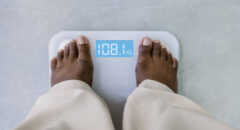
Fatima Mathews knew something wasn’t right. She was more tired than she’d ever felt in her life.
“You just had a baby,” her doctor reminded her. “It’s normal to be tired.”
She’d been feeling tired – and bloated and swollen – since the last few months of her pregnancy. And now it was time to go back to work. Mathews told herself she’d be fine.
But she didn’t feel fine as she tried to get out of bed that February morning, six weeks after giving birth at age 30. She sat on her bed for an hour, finally forcing herself to get dressed and head to the insurance office where she worked in Niagara Falls, New York.
She parked close to the front door – just 400 feet away – and resolved to push through the fatigue. “Ten steps in, I knew something was wrong,” she says. “My face started sweating. My shoulder hurt. My heart was beating fast.”
Too fast.
RELATED: Is Your Heart Beating Too Fast? Here’s How To Tell
A ‘cumbersome’ outcome
Mathews collapsed in a chair just inside the front door. When she finally consented to go to the hospital, tests confirmed her problem was indeed related to having a baby – but not because being a new mom makes you tired. She had a rare condition known as postpartum cardiomyopathy. In her case, it left her in heart failure.
“I thought I was going to die,” she recalls. “And I was going to leave my two children without their mother. I was absolutely terrified.”
Doctors implanted in Mathews’ chest a defibrillator, a small electronic device that monitors her heart rhythm and can correct any dangerous abnormalities.
For 10 years, the defibrillator did its job. Then the battery died. Replacing it should have been








